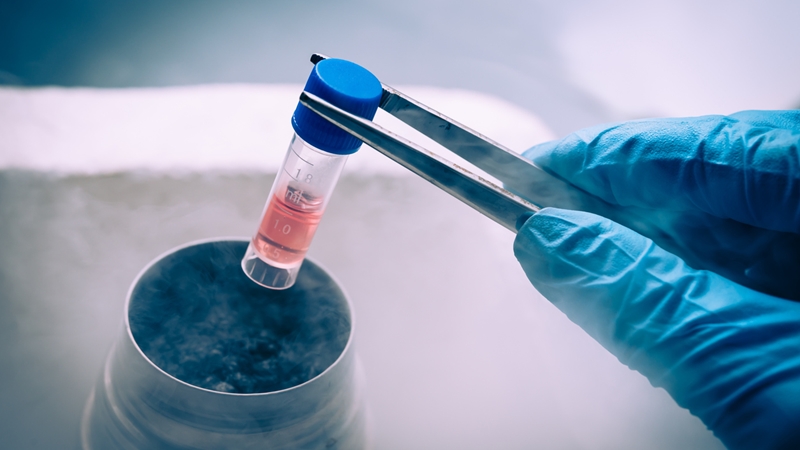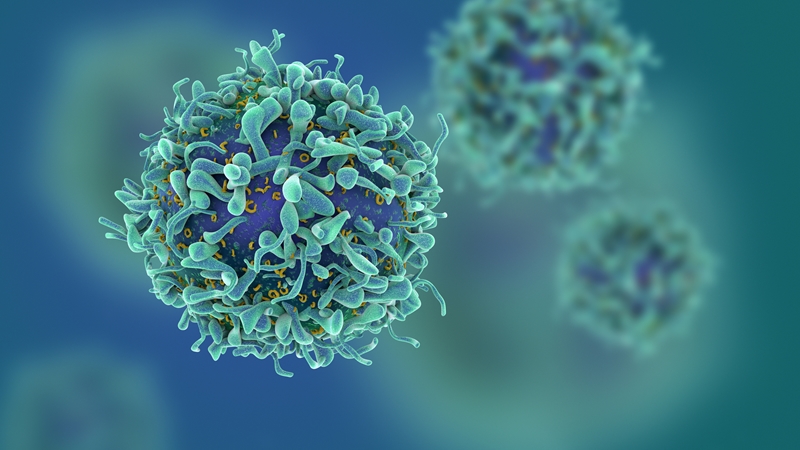"One-size fits all" no longer applies to the world of pharmaceuticals. With the increase of personalized medicine, manufacturers are pressuring regulatory authorities for faster product approval. But what else have personalized medicines changed in the GMP world?
Today, a better understanding of genetics as well as faster DNA sequencing allows doctors and scientists to provide better diagnoses, safer drug prescribing and more effective treatments. This is done by tailoring medicine to a single patient with personalized medicine [1] , also known as "targeted medicine". These developments give individuals increased control over their health. But the road to effective and safe personalized medicine is filled with challenges related to good manufacturing practice (GMP).
GMP compliance is essential to ensure the quality of medicinal products. The intrinsic characteristics of personalized medicine, such as Advanced Therapy Medical Products (ATMP)[2] include variability of the starting materials, small batch sizes, short shelf life, and so on. These qualities pose specific challenges for the manufacturing process.
Additionally, early phases of research may take place in a hospital setting operating under a different quality system than those typical of the pharmaceutical sector (as given in the quality management system model ICH Q10). This creates a gap of adequate systems in which to evaluate the quality of starting and raw materials.
Here is where personalized medicine changes the healthcare industry game – not only in the way many severe diseases are treated but also in the way medicine is developed, approved, produced and marketed.
Focus shift in personalized medicine
A keen focus – and a challenge – for advanced therapy medicinal products is GMP compliance within research, development and manufacturing. However, recently this focus has shifted. In 2015, GMP regulatory and compliance was all the industry could talk about. Later, in 2016, the main focus was primarily on manufacturing ATMP and secondly on GMP regulatory topics and challenges. Today, the trend leans towards manufacturing, new concepts and technologies rather than solely GMP.
The evolution of new concepts for future ATMP facilities and processes centres on the same trends we see in the broader pharma industry: closed systems and processes that move operators away from direct product contact and minimize product quality risk, and automation that enables the downgrade of GMP levels.
Personalized medicine changes the healthcare industry game – not only in the way many severe diseases are treated, but also in the way medicine is developed, approved, produced and marketed.
Towards a batch of one
When using the patient’s own cells to create their specific treatment, only one batch is used. This is because both the use of the patient's unique cells and the patient’s illness strictly limits the opportunities to re-do the procedure. Thus, there are challenges on how to make these therapies commercially viable and GMP compliant, such as:
- Manufacturing capacity
- Manufacturing reliability
- Manufacturing cost
- Manufacturing flexibility/scalability
- Comparison of test results
- Classification of rooms
- Patient-related logistics
- Regulatory approval of processes and product
- Cleaning
- Cross-contamination / mix-ups
- Quality control
- Safety for the operators
- Safety for the patient
- From lab to the market
- Batch release
- Traceability
Full cGMP compliance is a requirement throughout every process step for manufacturing facilities for personalized medicine. However, it is important to note that today’s GMP regulation was born out of pharma manufcaturing at blockbuster scale and is ill-fitted for personalized medicine production. For example, personalized medicine requires much faster approval.
The authorities, however, are working on a set of regulations that are more flexible and can embed the production of personalized medicine. The European Medicines Agency (EMA) drafted a stand-alone guideline with special focus on ATMP in 2015 Consultation Document – Good Manufacturing Practice for Advanced Therapy Medicinal Products. The revised framework aims at introducing flexibility for ATMPs.[3]
In addition, in 2013 the US Food and Drug Administration (FDA) published a report Paving the way for Personalized Medicine: FDA’s Role in a New Area of Medical Product Development, reaffirming the agency’s ongoing commitment to this emerging area of medicine by addressing personalized medicine from regulatory perspectives.
There is still much to be done, but the agency is striving to evolve its regulatory processes in response to and in anticipation of scientific developments that are critical for the development of personalized medicine.
To conclude, progress has not been swift. But the authorities are giving significantly more attention to personalized medicine and how to overcome inherited GMP obstacles in the current regulations. There will be many more regulatory changes in the near future to keep up with an expanding market, and the way GMP challenges are tackled globally will have a key influence over the future of personalized medicine.
[1] A broad term covering many different areas, no commonly agreed definition of the term yet but widely understood personalized medicine refers to three main categories; biomarker-based drug with co-diagnosis, gene therapy and cell-based therapy
[2] Advanced Therapy Medical Products include, among others, cell and gene therapies
[3] Per EU regulation 2007 (EC 1394/2007) all ATMPs are regarded as medicinal products and must therefore comply with current EU drug legislation including GMP requirements. The last contribution had the deadline of September 2016. The final version is in progress, but no deadline is published.



